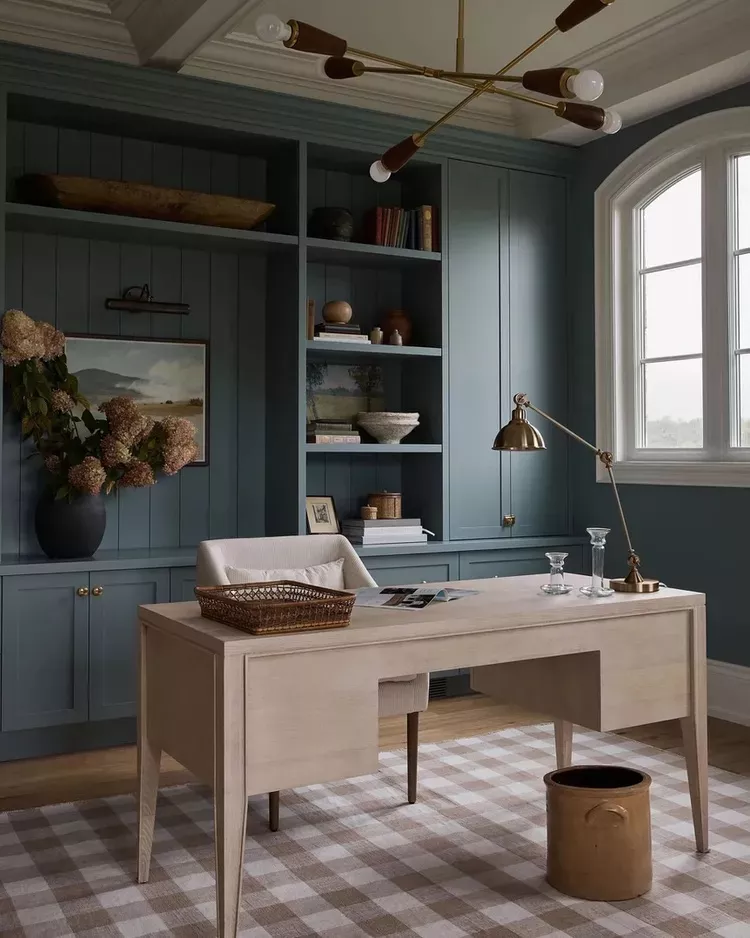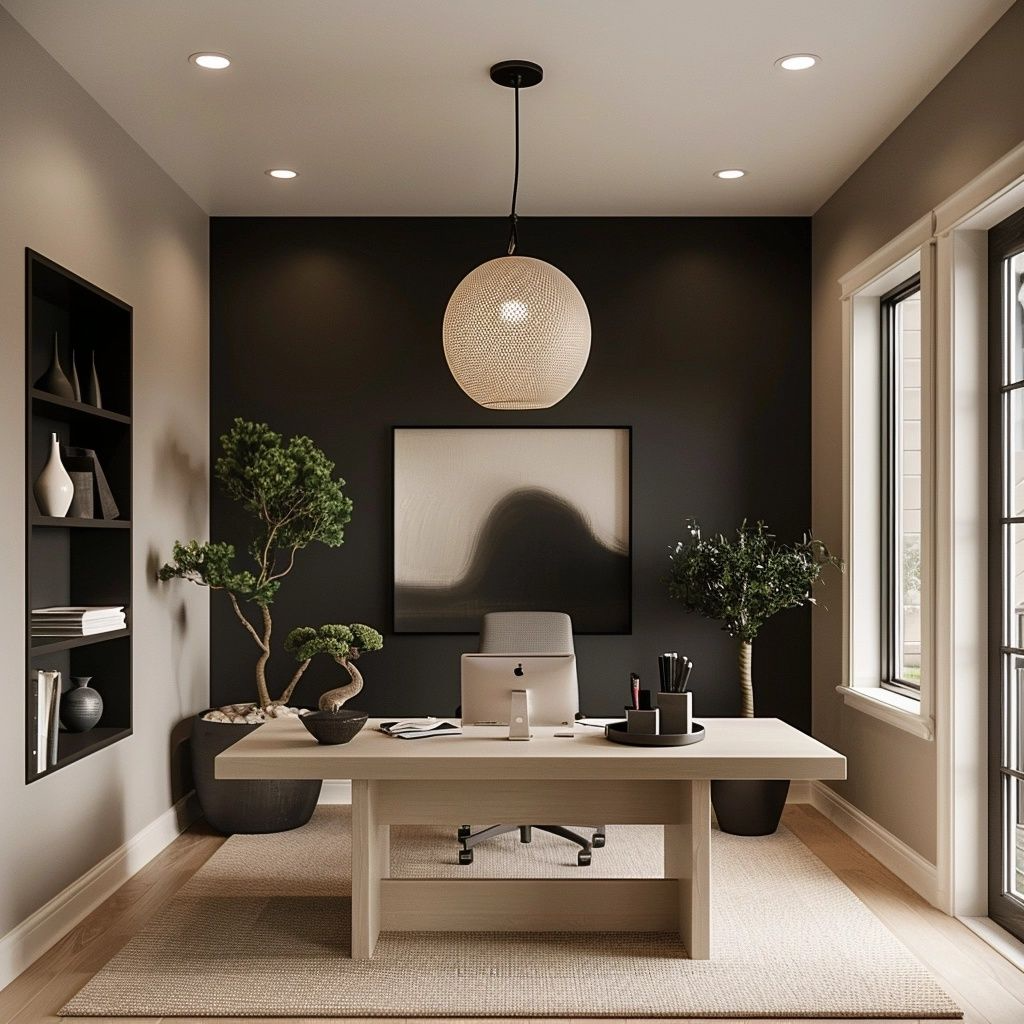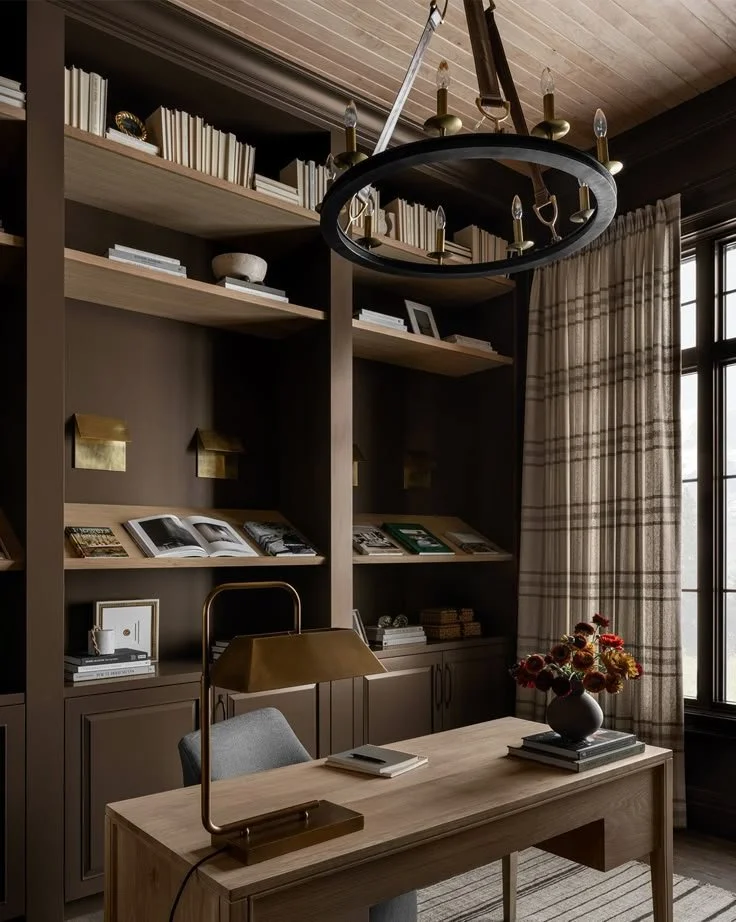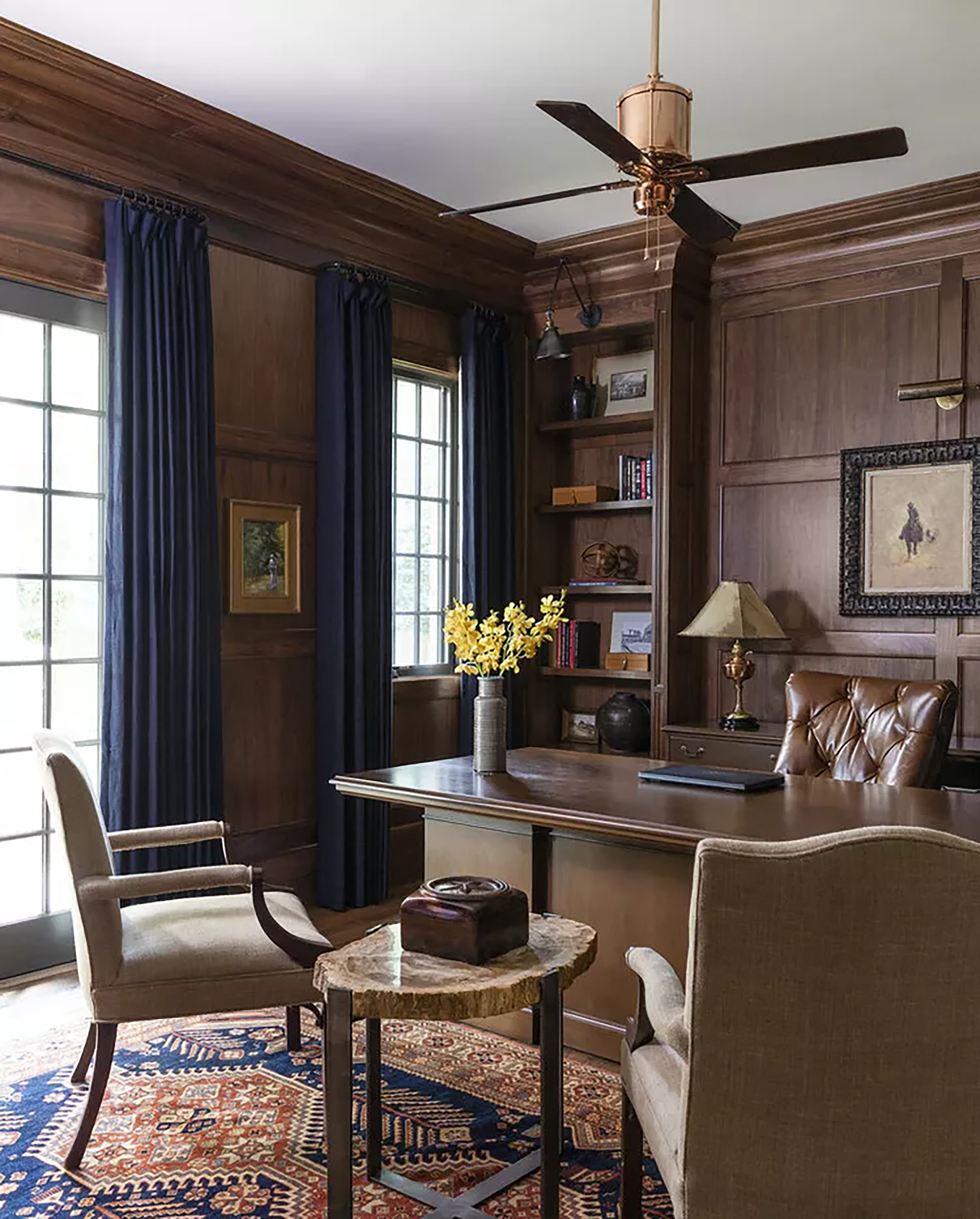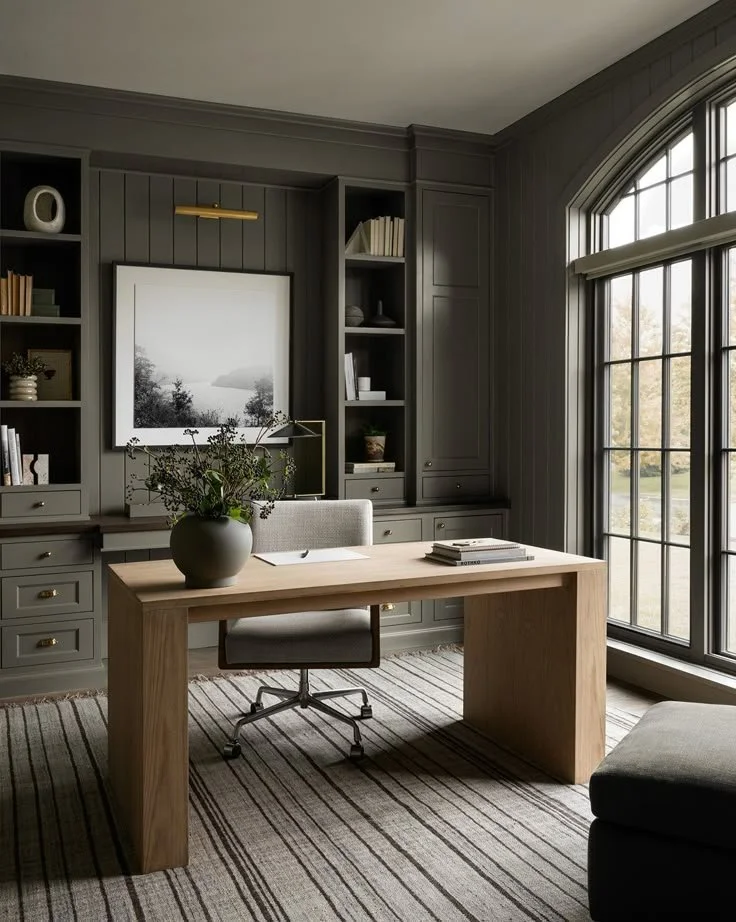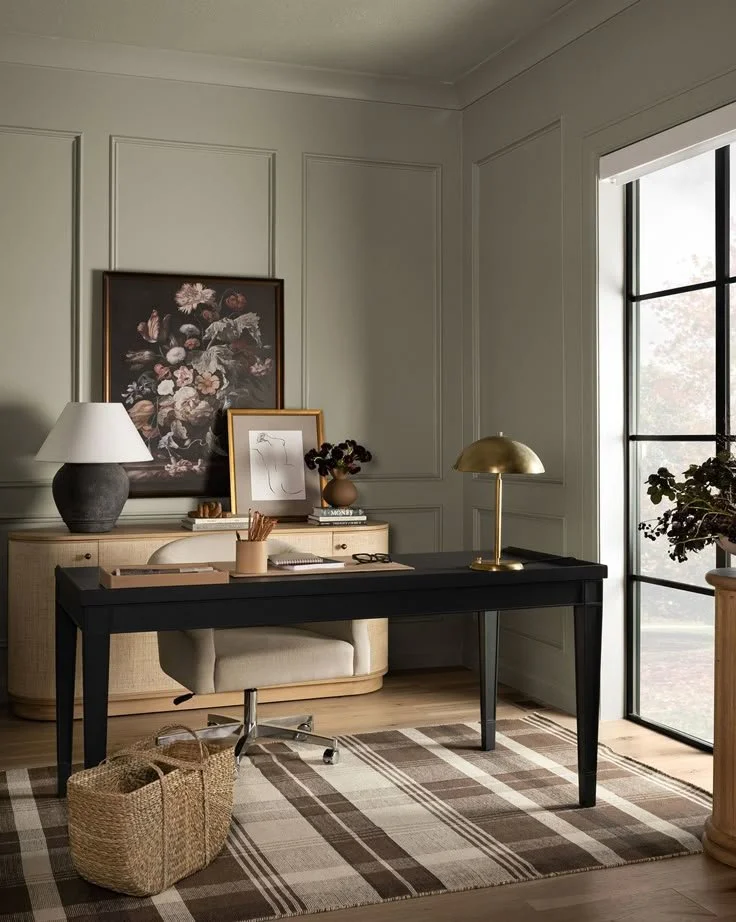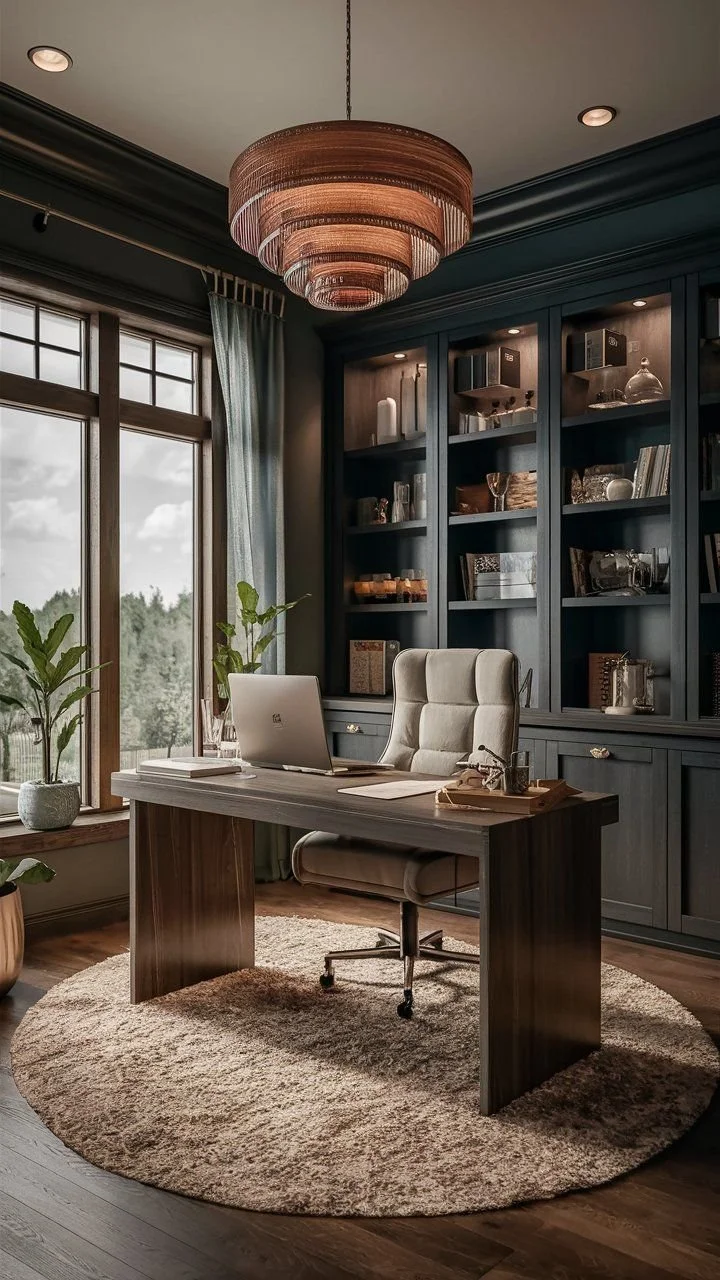Feng Shui Design
Feng
Shui
Your
Office
Feng shui is an ancient Chinese art that involves creating a space that’s harmonious with the environment. It literally means “wind” (feng) and “water” (shui). It promotes harmony and balance among the five natural elements (fire, water, metal, earth, and wood).
How to bring feng shui to your home office
01 | Place your desk in the power position
Desk placement plays perhaps the biggest role in the overall feng shui of your office. Ideally, you should put it in the command position.
The command position involves placing your desk and chair in front of a solid wall.
It's the idea of having support behind you, like the support of a mountain, as they say in feng shui. It’s not ideal to have your desk facing directly towards a window. While this might seem like a pleasant way to work, it’s best to have the window to your side instead, so that your energy and focus stays with your work, rather than out the window.
It also requires your desk and chair to be facing the door, but not directly in line with it, so you can see people entering.
Consider angling your desk diagonally to catch the east flow. In Feng Shui, the east represents growth and new beginnings, making this placement great for career expansion and fresh opportunities.
02 | Choose the Best Desk
When choosing a desk, select one that is solid and sturdy to help you create more stability in your career. Make sure it’s also big enough for you to work on comfortably. Ideally, you’ll want to avoid desks with a glass work surface because ideas and projects can energetically fall through and become lost.
03 | Incorporate the Five Elements of Feng Shui. The five elements of feng shui include wood, fire, earth, metal, and water, each promoting a different energy.
Wood – Growth & Creativity
Wooden desk or bookshelves to enhance creativity.
Green plants like lucky bamboo or a money tree to symbolize growth.
Use green accents in decor, such as artwork, cushions, or curtains, to represent nature and renewal.
Fire – Passion & Motivation
Add a red accent (e.g., a chair, artwork, or decorative item) to energize the space.
Use warm lighting, such as a desk lamp with a soft glow, to boost focus.
Place candles or a Himalayan salt lamp to create warmth.
Water – Flow & Inspiration
A small tabletop fountain or an aquarium to encourage the flow of ideas.
Use blue accents in a rug, curtains, or wall art to enhance calmness.
Incorporate glass or reflective surfaces (e.g., a glass desk or mirror) to represent water’s fluidity.
Earth – Stability & Grounding
Use earthy tones like beige, terracotta, or brown for a grounded feel.
Decorate with stone or ceramic items, such as bookends or a clay vase.
A woven jute rug or textured fabric chair adds warmth and stability.
Metal – Focus & Organization
Use metallic desk accessories, such as silver trays, gold pens, or a sleek metal lamp.
Keep the space organized with white storage solutions (e.g., file cabinets or shelves).
Add a round mirror or circular decor to enhance clarity and balance.
04 | Introduce water and plant elements
Incorporating water and plant elements into a feng shui home office brings a sense of balance, calm, and vitality. A small tabletop fountain or blue accents can represent water, promoting relaxation and inspiration. For the plant element, adding greenery like bamboo or a fiddle-leaf fig enhances creativity and freshens the space.
05 | Activate the Wealth Corner.
Find the wealth corner in your office, stand at the entrance and look toward the back left corner—this is the area connected to prosperity. To activate it, introduce wood elements like a plant or wooden furniture to encourage growth. A small water feature or an image of flowing water symbolizes financial flow, while accents in purple, green, or gold enhance abundance. Keeping this space tidy, well-lit, and free of clutter allows positive energy to circulate, creating an environment that supports success and financial stability.
06 | Choose the right colors
Blues often associated with calmness and focus, making it a popular choice for offices where concentration is key. Lighter blues can promote clarity, while darker blues can create a sense of stability.
Green is another excellent choice, symbolizing balance and renewal, and is less straining on the eyes for long periods of work.
Neutrals like beige, light gray, and white can create a clean, minimalist look that can boost a sense of spaciousness and clarity.
While warm colors like yellow and orange can be energizing, they might be too stimulating for a workspace where sustained focus is needed. Consider using them sparingly as accents or in collaborative spaces.
If you have a small space, lighter colors will make it feel larger, while darker colors can create a more intimate feel.
In Conclusion: Incorporating feng shui into a home office creates a space that promotes focus, productivity, and positive energy. By balancing the five elements—wood for growth, fire for motivation, water for inspiration, earth for stability, and metal for clarity—you can design an environment that feels both harmonious and energizing. Proper desk placement, clutter-free organization, and intentional decor choices, such as plants, water features, and meaningful colors, enhance the flow of energy and support success. Whether activating the wealth corner or creating a calming atmosphere, feng shui helps transform a home office into a space that encourages prosperity, creativity, and well-being.


